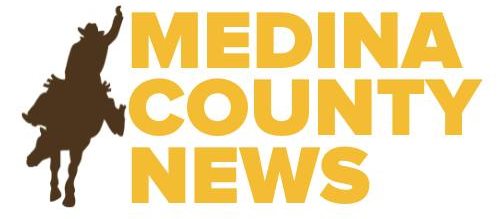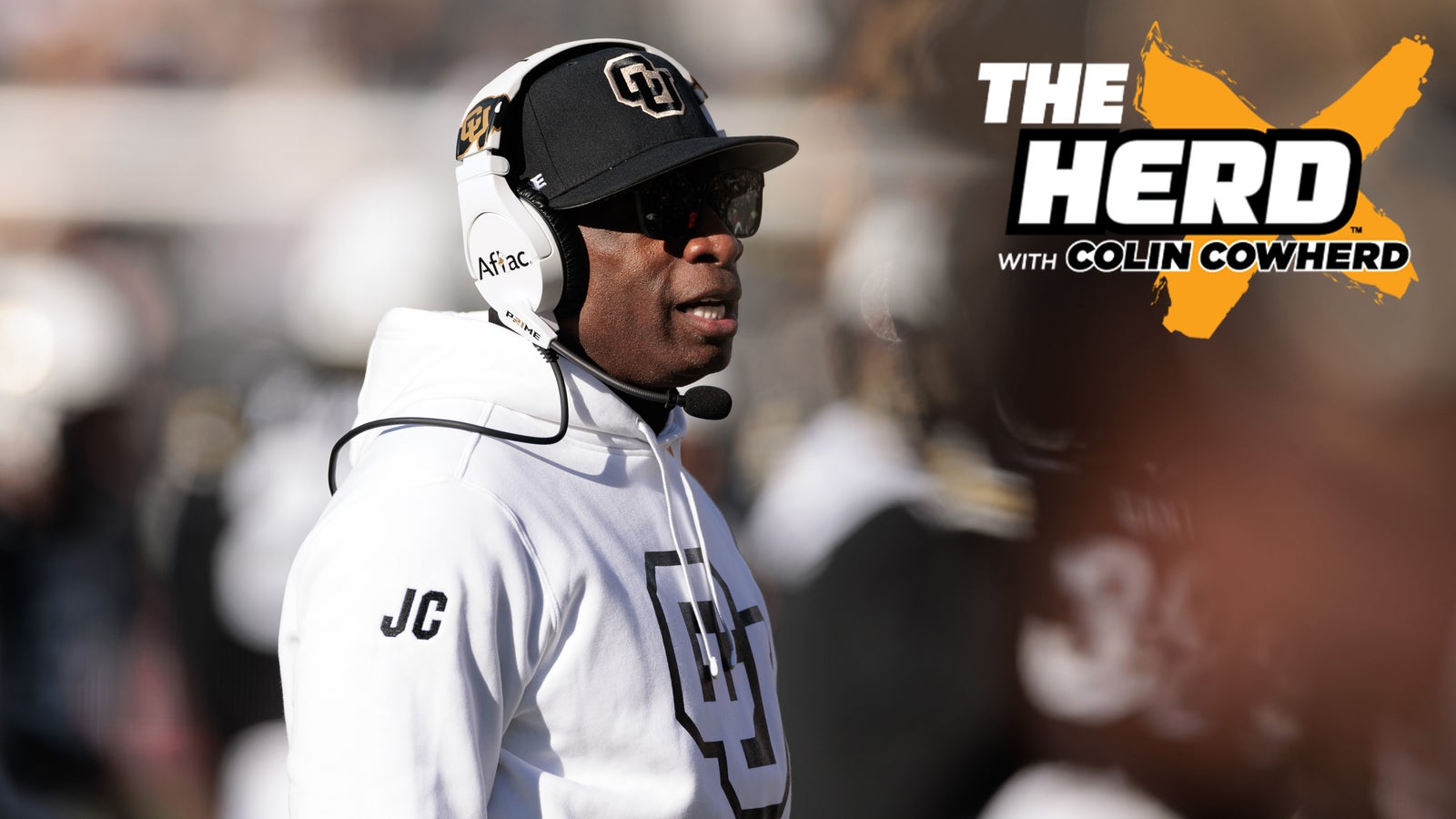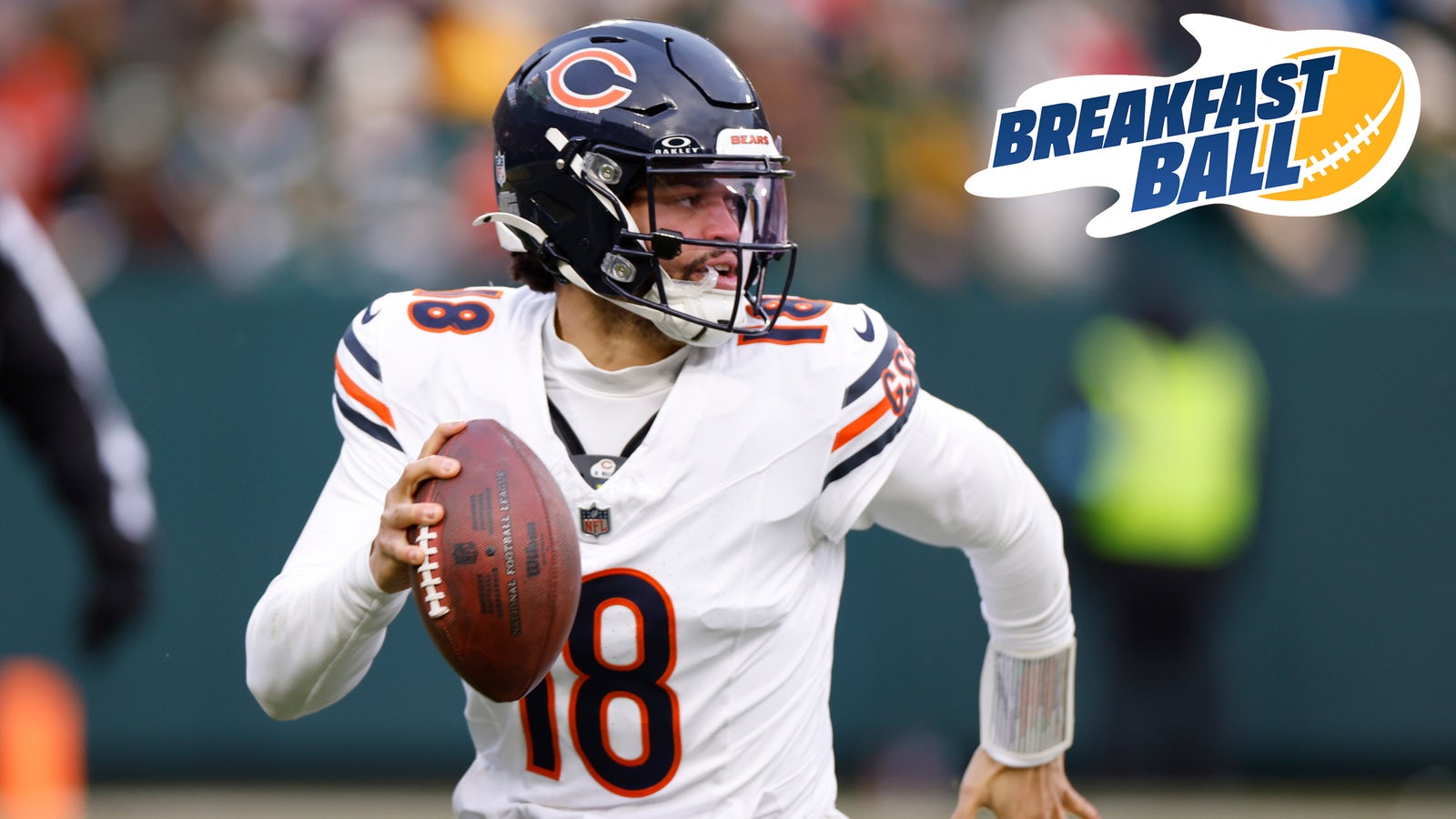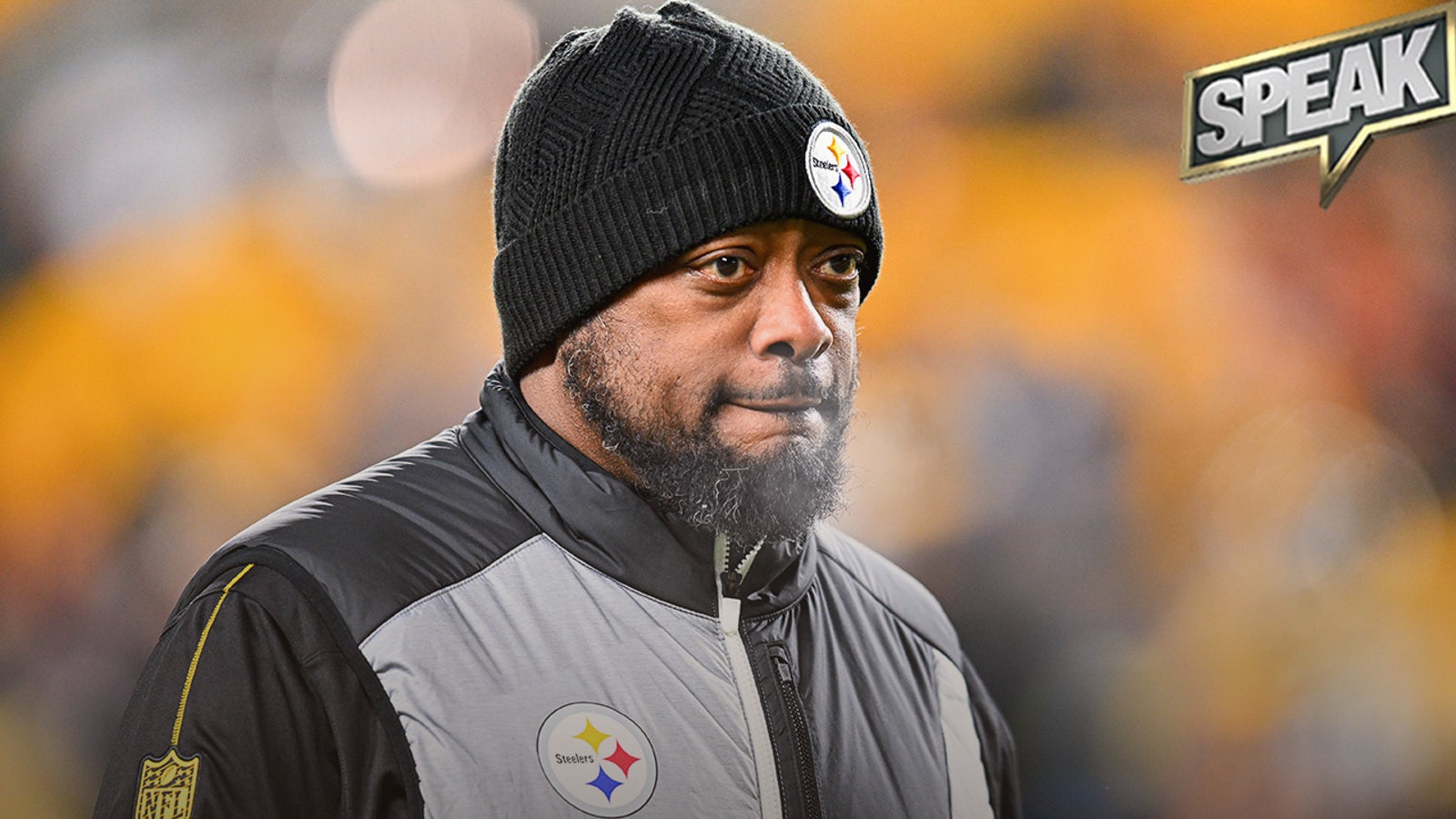With all due respect to passing, running, blocking and tackling, the busiest verb in the NFL lexicon this week is “interviewing,” with dozens of interviews densely packed in across the league during the days immediately after and before playoff games.
On Wednesday night at 11:56 p.m., the Jaguars announced they’d finished an interview for their vacant head coaching job with Bucs offensive coordinator Liam Coen. Nearly 12 hours earlier, the Bears had done the same in announcing an interview for their job with Steelers offensive coordinator Arthur Smith.
It’s a dizzying schedule that must follow a labyrinth of NFL rules for when and how interviews can be conducted, both virtual and in-person, based on whether a candidate is under contract with a team, whether that team is alive in the playoffs or had a bye and so on. There have been seven head coach openings, with the Patriots already hiring Mike Vrabel as the first domino in a complicated process for the other six jobs that could carry beyond the Super Bowl, still more than three weeks off.
So what are these interviews like? How have they changed in recent years? We talked to people on all sides of these meetings, including current and former NFL head coaches and coordinators and general managers, speaking on the condition of anonymity for this story. What you learn is that a candidate can interview for three jobs in three days and have three distinct experiences, all working toward the same goal.
ADVERTISEMENT
The biggest change in the hiring process in the past five years has its roots in, of all things, COVID-19, and the Zoom video meetings that have become a part of daily life in normal workplaces. Instead of quarantine, it’s about convenience now, and the initial wave of interviews even for head coaching jobs are now almost exclusively virtual, allowing teams to cast a much wider net.
Before COVID, an NFL team might have had a short list of four or five candidates and interview within that group, going beyond that only if there wasn’t an obvious match. Now, some teams are talking to 15-18 initial candidates — the Jaguars talked to three current assistants in a span of eight hours on Saturday — allowing them to check on more options before bringing in finalists in person.
Video interviews are logistically easier, but few people involved in the process like them. Being a coach is about presenting to a room, and a Zoom call makes it harder to convey how that’s done and done well, without the same eye contact or readable reaction. Top candidates have agents who have carefully prepared them for these important moments — coached them, if you will — and that can help but can also give the feel of someone whose answers are too packaged and branded and less genuine and honest.
“In order to get my foot in the door, a first-round type deal, you have to do the Zoom,” one current coordinator said. “But I think the in-person thing is so much more personable. You can feel the energy, read emotions and things like that, things you can’t do on a Zoom.”
Even the logistics of an interview will vary from team to team. It’s almost always a first-class seat on a commercial flight, with private jets a rare exception to wow a head coach candidate, as the Bears reportedly did for Mike McCarthy this week. It might be a car service from the airport to a team facility, or it might be a staffer or the GM himself picking a candidate up curbside. Some teams will go completely off-site for interviews in an airport Marriott ballroom in Dallas or Nashville or an owner’s private residence in Palm Beach.
Candidates have waited their entire coaching careers for an interview like this, so they’ll come prepared, often with thick binders that are equal parts vision statements and daily planners. “Take out your calendar” is a phrase used in interviews, detailing not only the work done in offseason months but down-to-the-minute schedules of a game week and how preparations come together there.
“They’re going to want you to go A to Z, every single thing, what it’s going to be like,” one coach said.
Some binders are personal and individual, but others can look a little familiar, with many coaches represented by the same agencies, using the same basic source material. “The fancy books that have all their philosophies and stuff that we never go through,” one team executive said. “We’ll look at them, but we won’t go through it page by page.”
Who are you interviewing with? That too can run the gamut. A head coach candidate might sit down directly with ownership, one-on-one with the general manager making the hire or a college-like search committee working together for a recommendation. A coordinator candidate might meet with the head coach, or with the entire staff he’d be joining. One coach said he was just left with assistants for a few hours, simply to see how they’d work together as they would in creating a game plan for an opponent.
With some teams, a candidate might be the focus of an entire day — fly in the night before, start the interview process at 8 a.m. and wrap just in time to make a 7 p.m. flight home. Given the close relationship between a head coach and general manager, it’s common for them to get dinner together, allowing for a more laid-back, informal talk about the job and the dynamic between them. Other teams will have so many interviews that they overlap and delay others like dentist appointments, with candidates passing each other in the hallway, trading a nod and smile as they go from one room to the next.
Candidates will invariably be asked to evaluate the current personnel, good and bad, and that’s a tricky path to navigate. After all, the job-seeker is talking to a GM who drafted or signed most of the players on the roster, but the team is changing coaches, so the GM can’t exactly love all of his players, either. Politely praise the wrong guy, and the team might question your evaluation skills. You want to exude the confidence of “I can win with those guys,” but also make it clear where changes and upgrades are necessary, without overstepping your bounds.
A head coach will be asked about the assistants he’d be able to bring in, the biggest being the opposite-side coordinator — who will run the defense for an offensive coach and vice versa. Coaches will prepare a depth chart of options at every position, though the viability of the hires isn’t always double-checked.
“That’s one of the biggest jokes out there,” one coach said. “In the NFL, you can’t just hire the guys you want to hire. They’re under contract. You can say, ‘This receivers coach, he’s my best friend, was my college roommate.’ That’s too bad. He’s under contract. Guys will have a list that’s 10 deep at each position. You’ve got Bill Belichick and Mike Tomlin running your defense, and some of the people in these interviews had no clue. ‘That’s impressive.’ You’re not going to get any of those guys.”
Added a current front-office executive: “Every single one, every time we go through it, [I’ll ask], ‘Is this guy available to be your linebackers coach?’ ‘Uh, he’s under contract, but he says he can get out.’ No way they’re letting him out of his contract.”
The NFL hiring cycle is at least a half-dozen billion-dollar companies competing in real time for the same pool of top candidates, each expected to be the face of a franchise and carrying a fully guaranteed contract at $5 million or more a year for five or six years. That’s pennies compared to big player contracts, but there is no salary cap for coaches and assistants, no limit to spending to get the right staff in place — yet the league still cycles through a quarter of its head coaches each offseason.
For NFL teams, what kind of coach they hire is the precursor to the actual choice. Franchises often tend to oscillate to the opposite of their previous coach — if you just fired a young guy, you might want someone with head-coaching experience, and if you just failed with a defensive-minded coach, you might be more likely to make an offensive hire. How much power a head coach wields compared to the general manager — who controls the 53-man roster, the draft priorities, the spending decisions — will vary from team to team and candidate to candidate.
For coordinator candidates, there are two kinds of interviews: with head coaches they’ve worked with, and head coaches they haven’t. Familiarity is a huge asset in coaching, and a head coach needs to know how you operate, how you collaborate with others, how you handle adversity and success. Sometimes, the interview was the three seasons a candidate spent with a coach on another team, so a meeting is catching up to check up on if you’re still on the same page.
“There’s no real interview. It’s, ‘Hey, come on in, I want to hire you. Let’s talk about a staff, get the position coaches in and make sure we can all work together,'” one longtime assistant said. “Whether it’s fair or not, if you worked with the guy every day for a year, watched his work ethic, what do you really need to talk to him about? The word ‘trust’ should come to mind: I trust this person.”
If he doesn’t know a head coach, a coordinator candidate has a short amount of time to show what he knows about football, the X’s and O’s of beating an opponent. This can be specific questions: How would you attack this divisional opponent? Could these players you would inherit thrive in your scheme, or how would you adjust if they couldn’t? One candidate recalled an analytics staffer sitting in on the interview who pulled up a reel of specific plays from that coach’s past season (and not necessarily the best plays). Why did you call this on this down? What was the rationale behind this look on this play?
Teams might have a coach use a white board to draw up a play, to show how he’d install it with a position group, or better yet, lay out an alignment from an opponent and ask him to show how he’d line up against it. For coaches, this is often a favorite part, a rare chance to go back and forth with a potential employer and potential adversary and scheme against each other in person, even if both sides are holding some of their best ideas back.
Coordinator jobs can come open surprisingly, like if someone leaves to take another head coaching job, and that leaves a head coach scrambling to fill a key opening while other teams are building their staffs as well. Interviews at team facilities can be limited because assistants aren’t around as much. And for coaches out of the playoffs, January can be a month for a long-deserved vacation with family. One assistant remembered a virtual interview where he and the head coach were both clearly doing the Zoom from laptops in their resort hotel rooms, trying to get a job filled without completely leaving the wife and kids at the beach.
There’s a sneaky level of espionage on both sides as well. A coach who gets an afternoon in another team facility gets a behind-the-scenes look at its technology, the layout of meeting rooms and use of space. Teams are mining for outside insights as well. One coordinator candidate recalled an interview during which two-thirds of the questions were just asking him about the strengths and vulnerabilities of the team and how he’d attack it, as if he were there to help with the team’s self-scout as much as to interview for a job.
Like any industry, a candidate might think he bombed an interview — you hear stories of teams literally pronouncing someone’s name wrong in initial interviews, then later offering him the job. The opposite can also be true. “I went away from that interview thinking I knocked it out of the park, and then I didn’t get hired,” one coach said.
A month from now, the league will have 32 head coaches and their offensive and defensive coordinators set for the year ahead. And just as certain, 11 months from that, the process will start again, with openings and interviews and another cycle of the same.
Greg Auman is an NFL Reporter for FOX Sports. He previously spent a decade covering the Buccaneers for the Tampa Bay Times and The Athletic. You can follow him on Twitter at @gregauman.
Want great stories delivered right to your inbox? Create or log in to your FOX Sports account, and follow leagues, teams and players to receive a personalized newsletter daily!
recommended

Get more from National Football League Follow your favorites to get information about games, news and more




